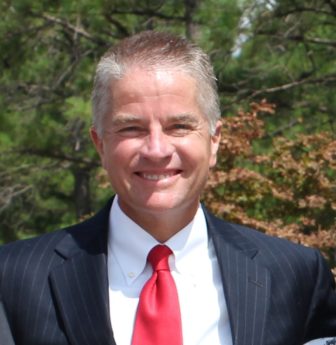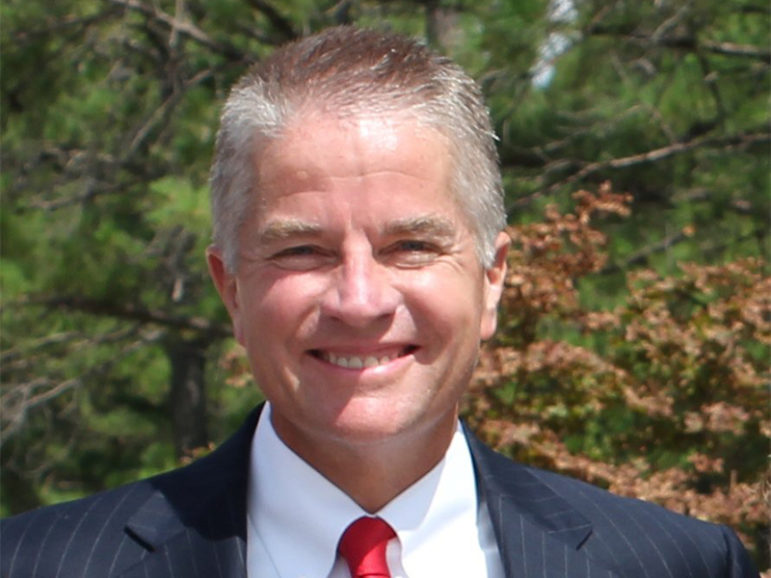
Richard Ostler
This is a guest post from Richard Ostler, adapted with his permission from a Facebook post he wrote earlier this week.
I was very struck by its wisdom and compassion, and asked if I could edit and share it so that those who aren’t lucky enough to be Facebook friends with him can have a chance to read it. — JKR
A guest post by Richard Ostler
I serve as a bishop of a singles ward with over 300 members. They are incredible . . . some of the best people I know. Among them are those who are not sure about their testimony in the church, with some being in a more difficult situation experiencing a total “faith crisis.” (I’ve come to believe this is part of mortality for some, and should be considered as expected or even welcome in their faith journey with the added growth that will come, versus something “bad” that they have caused to come upon themselves.)
Some of these good ward members attend church and some do not. I spend a lot of time meeting with members in this group, listening to them, praying with them, reflecting on how best to help them, and getting insights from others. I’d like to share some thoughts in hopes it might be helpful to others. These are my thoughts and my thoughts only. I do not claim to be a spokesperson for the Church.
- I avoid telling people just to be more faithful. I’ve come to learn that counseling them to “read more,” “pray more,” and/or “study the scriptures more” may in some situations not be helpful, and will actually make the situation worse. Why? They may already be doing these things. In fact they are sometimes doing a better job of this than I am. They may have spent years going down this road and have yet to gain an “I know the church is true with every fiber of my being” testimony. While this may be the correct advice for many, for others it may just add to their burden and make them feel they are different and just don’t belong, causing them to walk out of Mormonism.
- I accept that not everyone will fit into the “I know” crowd. As we learn in D&C 46:13-14, to some it is given to “know” and to others it is given to “believe.” There is not a “know” requirement in the first four temple recommend questions about our beliefs. We all have different spiritual gifts and we need to give permission for everyone to feel comfortable at church with a range of testimonies such as “don’t believe,” “sort of believe,” “not sure,” “feels right,” “maybe,” “I think so,” “I believe,” and “I know.” Elder Uchtdorf said, “I know of no sign on the door of our meetinghouses that says, ‘Your testimony must be this tall to enter.’”
I have so much respect for those who share their testimony and use less absolute phrases than “I know.” Maybe that is the best some are able to do now. I’ve met many of these wonderful members and see firsthand all they do to help and faithfully serve others. Often they have unique Christlike attributes and gifts. They are the best of the best. Maybe for some “I don’t know” is their destination for this lifetime … not just a temporary stop.
- I resist the temptation to bear testimony “at” this group. Instinctively, I’ve sometimes wanted to bear my testimony of the church to those who open up with their concerns. Maybe this results from my lifelong church training and mission experience. This might be the right thing for some people, but it makes others feel worse, shutting them down just as they are opening up. When people bear testimony at them, it reinforces the feeling that they are different, that there is something wrong with them.
- I work on truly listening. I feel the best thing I can do is listen. I call this listening to understand, as opposed to listening in order to find an opening to talk or teach. I often take notes as I listen during interviews and refer back to them to make sure I understand. I also don’t sit across from them from behind my desk, but face to face on the opposite side of my desk. I’ve always felt my best bishop interviews are when I listen well over 50% of the time, resisting the temptation to teach, fix, or talk about myself.
- I trust that they are receiving personal revelation. Instead of being prescriptive, I often feel impressed to invite the person I’m meeting with to discuss and act on their impressions to address their faith journey. I believe strongly in the principle of personal revelation … and that it is unique and customized to each person.
- I know my own testimony is a work in progress. Many of us have different feelings about different areas of the church such as doctrine, policy, individual leader styles, culture, past history, etc. For me, there are parts of the church for which I use the “know” word and parts for which I can’t use that word. For example, I know I hold the priesthood of God; I know this as I’ve given maybe 1,000+ blessings over the past three years. I know temple covenants are powerful, that I feel “at home” in the temple, that the Atonement of Jesus Christ is real, and that the Book of Mormon is true (though I’m not comfortable when some people use those war stories to figuratively “go to war” with those who are different than us). These beliefs and experiences (including powerful spiritual experiences of teaching/inviting/walking three incredible young men into the waters of baptism) keep me firmly planted with both feet in the church that I love and sustain.
There are other areas that are much harder for me, like some of the church’s history, polygamy (which I have on a shelf for now), and the sadness and pain I feel in my heart and the hearts of others with the November policy statements. To me, the pain I see this policy causing in some faithful members and in the LGBT community is not consistent with the Gospel of Jesus Christ … and I feel it is a contributing factor in the recent suicides of some of our dear LGBT sons and daughters, who are some of Heavenly Father’s most tender, pure, and precious spirits.
I share my personal feeling about the policy and LGBT issues not to persuade you to my way of thinking, but to let you know that although I have real concerns about some issues, I choose to keep both feet in the church and follow its teaching. In my situation it just adds to my pain when others tell me “the prophet has spoken” or double-down on the doctrine of traditional marriage. I believe in the prophet and the doctrine of traditional marriage, but I also need people to acknowledge my pain and “mourn for those who mourn.”
- I focus on strengths. Some without an “I know” testimony may conclude that something is wrong with them and focus on their faults, imperfections, or the commandments that they are still working to keep. They assume that the problem is all with them, instead of considering that they might not have this spiritual gift of knowledge, or that the “I know” may come later. Overanalyzing ourselves and focusing on our weaknesses is usually an emotionally damaging road, so I encourage people to focus on their strengths and gifts. This is how I believe Heavenly Father sees all of us.
- I strive to make a bigger tent. I worry that we Mormons have created a culture and a way of talking in “absolutes” that makes it hard for some to feel like they belong. Their leaving breaks my heart. I want the tent of the church to extend so that people with all ranges of testimonies feel like it is their spiritual home where they are welcome and accepted. I want them to feel safe to share their true feelings without judgment or suggestions about how they can be “fixed.” I believe the Lord wants our church to be a safe and accepting place for all His sons and daughters … not just those that fit the mold.
With love, Papa Ostler
Richard Ostler is a small business owner in Salt Lake City. He is married, the father of six, and the grandfather of one.
RELATED POSTS:
- LDS leader Dieter Uchtdorf addresses those who leave the Mormon fold
- In a Mormon faith transition? Here’s help
- 6 unexpected findings about Mormon doubters — and one that’s no surprise






